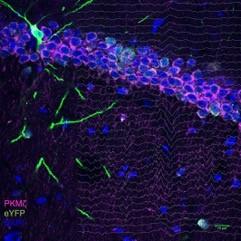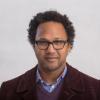Abstract:
How do we learn and know? For much of my career it was assumed that neurons respond to external stimuli as if to represent them, but an equally plausible model asserts that neuronal activity is fundamentally internally-organized and instead fit to external features of the world. I will report on our investigations of acquired cognition through studies of spatially-tuned cells in the medial entorhinal cortex and hippocampus. We started with the “noise,” uncertainty of spatially-tuned action potential discharge, a clue that cognitive variables might be in that noise. Our studies of knowledge embrace the interplay across the molecular, synaptic, network, and behavioral levels of biological organization. I’ll discuss the discharge of hippocampus place cells and molecular signaling during phencyclidine intoxication and I will discuss head-direction cells in the medial entorhinal cortex as different examples of internally-organized neural representations during purposeful navigation of the environment, as well as recent studies of the hippocampal remapping phenomenon, in which place fields rearrange according to cell-specific rules when the environment is changed. I suggest a “reregistration” reinterpretation, that hippocampal neural activity is fundamentally internally-organized such that cofiring relationships amongst the cells are largely invariant across distinct environments, despite the cell-specific rearrangement of place fields. Collectively these studies promote a view that rather than represent external information, subjective, internally-organized activity in the entorhinal-hippocampal circuit is actively fit to the environment for processing information that enables navigation and serves cognition.

Biography:
André Fenton, professor of neural science at New York University, investigates the molecular, neural, behavioral, and computational aspects of memory. He studies how brains store experiences as memories, how they learn to learn, and how knowing activates relevant information without activating what is irrelevant. His investigations and understanding integrates across levels of biological organization, his research uses genetic, molecular, electrophysiological, imaging, behavioral, engineering, and theoretical methods. This computational psychiatry research is helping to elucidate and understand mental dysfunction in diverse conditions like schizophrenia, autism, and depression. André founded Bio-Signal Group Corp., which commercialized an FDA-approved portable, wireless, and easy-to-use platform for recording EEGs in novel medical applications. André implemented a CPAP-Oxygen helmet treatment for COVID-19 in Nigeria and other LMICs and founded Med2.0 to use information technology for the patient-centric coordination of behavioral health services that is desperately needed to equitably deliver care for mental health. André hosted PBS’ NOVA Wonders, and hosts “The Data Set” a new web series soon to launch on how data and analytics are being used to solve some of humanity’s biggest problems.
This will be a hybrid event.
